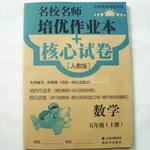题目内容
【题目】听下面一段较长对话,回答以下小题。
【1】How does the man feel when he sees the woman?
A. Surprised. B. Disappointed. C. Annoyed.
【2】What is the woman going to do next weekend?
A. Work a half day. B. Go to the beach. C. Stay at home.
【答案】
【1】A
【2】B
【解析】M: Hi, Iris. What are you still doing here? I thought you were working a half day, so you could prepare for your trip to the beach.
W: That was my plan, but the weather report is calling for rain this weekend. It’s supposed to be nicer next weekend.
M: So will you go next weekend instead?
W: Yeah, I think I’ll stay at home this weekend and work a half day next Friday. I’d rather go when the weather is better.
解析略.
【1】此题为听力题,
【2】此题为听力题,解析略.

练习册系列答案
 名校名师培优作业本加核心试卷系列答案
名校名师培优作业本加核心试卷系列答案 全程金卷系列答案
全程金卷系列答案
相关题目